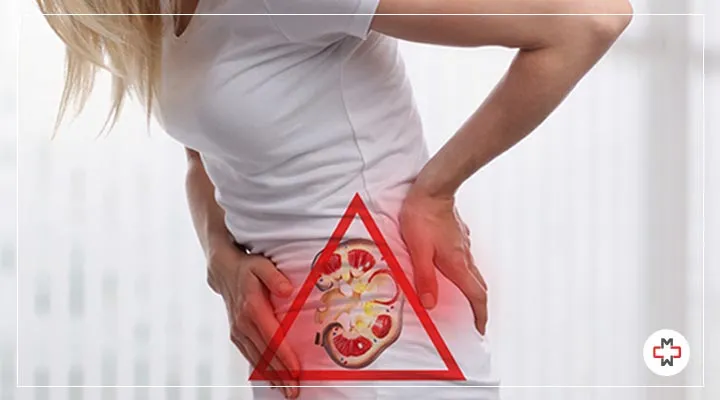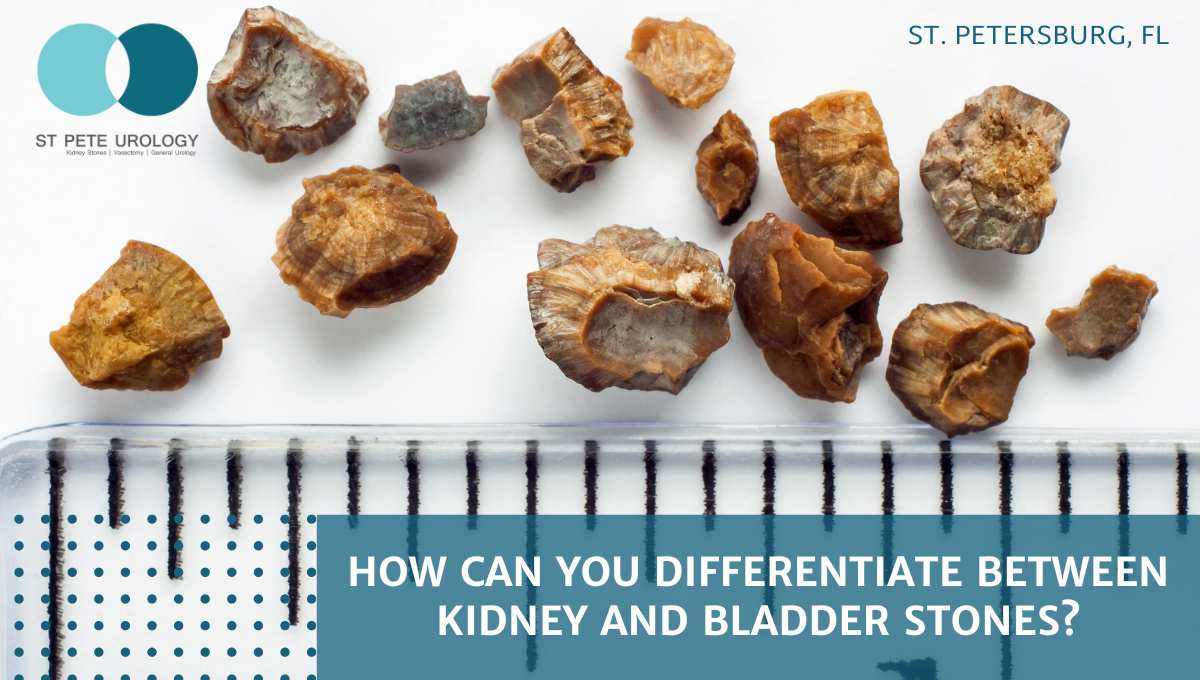Checking Out the Effects and Causes of Kidney Stones in Comparison to Urinary System System Infections: A Comprehensive Overview
The exploration of kidney stones and urinary system system infections (UTIs) discloses a complicated interaction of symptoms and underlying causes that call for mindful evaluation. While both problems can lead to hematuria, they present unique professional functions and emerge from different etiological elements. Recognizing the nuances of each problem is crucial for effective diagnosis and administration. What are the vital differences in their signs and symptoms, and how might these inform treatment methods? The response to these inquiries might provide important insights into the avoidance and care of these common urological problems.
Introduction of Kidney Stones
Kidney stones, also called renal calculi, type when specific compounds in the urine crystallize and aggregate, leading to the development of tough down payments within the kidneys. These rocks can vary in size, varying from a grain of sand to a golf ball, and can be made up of different materials, one of the most typical being calcium oxalate, uric acid, struvite, and cystine. The formation of kidney rocks is affected by a number of elements, consisting of dietary behaviors, fluid intake, and genetic predisposition.
Signs and symptoms of kidney stones might include extreme pain in the back or side, blood in the urine, nausea or vomiting, and frequent peeing, especially as the rock moves with the urinary system system. Medical diagnosis generally includes imaging studies such as ultrasound or CT scans, together with urinalysis to recognize the rock's make-up.
Therapy alternatives vary based upon the size and kind of rock, along with the intensity of signs (Kidney Stones vs UTI). Tiny stones might pass naturally with increased fluid intake, while bigger stones may require medical treatments such as lithotripsy or medical elimination. Comprehending the pathophysiology and threat variables related to kidney stones is vital for efficient avoidance and administration
Overview of Urinary Tract Infections
Urinary system system infections (UTIs) are usual microbial infections that affect any kind of part of the urinary system, consisting of the kidneys, ureters, bladder, and urethra. They mostly occur when microorganisms, typically from the stomach tract, enter the urinary system, causing swelling and infection. UTIs are classified into two main types: straightforward and complex. Straightforward UTIs typically take place in healthy people with normal urinary system systems, while difficult UTIs may occur in people with underlying problems, such as structural abnormalities or jeopardized body immune systems.
The frequency of UTIs is especially greater in ladies than males, largely as a result of physiological distinctions, such as a shorter urethra. Danger factors consist of sex, certain contraceptive methods, urinary system retention, and dehydration. The medical diagnosis of UTIs is usually verified with urine examinations, which might expose the presence of germs, white blood cells, or red blood cells.

Signs of Kidney Stones
The pain connected with kidney rocks can manifest in numerous methods, commonly leading people to look for clinical interest. Among the most common signs and symptoms is extreme discomfort, generally local in the lower back or side, which may radiate to the abdomen or groin. This pain, frequently referred to as sharp or cramping, can happen instantly and may change in intensity.
In addition, people may experience hematuria, or blood in the urine, which can range from microscopic total up to visible discoloration. This go to these guys signs and symptom may be come with by modifications in urinary routines, such as enhanced frequency or necessity, as well as pain during urination. Nausea and vomiting are additionally common, often resulting from the body's response to extreme pain.
Sometimes, people might experience high temperature and cools, specifically if a secondary infection creates due to the obstruction triggered by the rocks. On the whole, the mix of extreme pain, hematuria, transformed urinary patterns, and intestinal symptoms can give substantial understanding right into the existence of kidney rocks, warranting punctual medical examination and treatment. Comprehending these signs and symptoms is critical for prompt medical diagnosis and reliable administration of the problem.
Signs of Urinary System Infections
Infections within the urinary system tract usually offer a variety of distinctive signs that can significantly influence every day life. The most typical signs i loved this and symptoms consist of a consistent urge to urinate, often accompanied by a burning experience throughout urination, called dysuria. Individuals may likewise experience boosted regularity of urination, creating percentages of pee each time.
Other remarkable signs consist of gloomy or fetid urine, which may indicate the presence of bacteria or pus. In some instances, pee might appear pink or red as a result of the existence of blood, a problem recognized as hematuria. Additionally, people might experience pelvic pain or pressure, which can even more worsen the sensation of urgency.
Systemic symptoms may likewise manifest, such as fever, chills, and exhaustion, specifically if the infection has actually ascended to the kidneys. It is necessary to acknowledge these signs and symptoms early, as unattended urinary tract infections can lead to much more serious complications. Kidney Stones vs UTI. Motivate clinical attention is suggested when these signs and symptoms are observed, allowing for ideal diagnostic evaluation and therapy to ease discomfort and prevent additional health issues
Sources Of Each Problem
Regularly, kidney rocks and urinary system infections occur from distinctive yet sometimes overlapping causes that can influence individuals in different ways. Kidney stones commonly develop due to metabolic factors, nutritional options, and hereditary tendencies. Raised levels of calcium, oxalate, or uric acid in the pee can lead to rock development. Dehydration, inadequate fluid consumption, and high-sodium diets can intensify these problems, promoting formation within the urinary tract.

Understanding these distinct reasons is vital for avoidance and therapy. Kidney Stones vs UTI. While lifestyle adjustments might minimize the threat of kidney stones, ideal hygiene and punctual therapy of urinary tract infections are vital for decreasing visit here their recurrence and associated issues
Verdict
In recap, kidney stones and urinary system tract infections existing distinct signs and symptoms and underlying reasons. Kidney stones are identified by severe pain and metabolic variables, while urinary system infections largely include bacterial infections leading to urinary system urgency and pain.
The exploration of kidney stones and urinary tract infections (UTIs) discloses an intricate interplay of signs and symptoms and underlying causes that warrant cautious assessment.Urinary system system infections (UTIs) are usual bacterial infections that affect any component of the urinary system, including the kidneys, ureters, bladder, and urethra.Often, kidney rocks and urinary system system infections emerge from distinct yet occasionally overlapping causes that can impact people in a different way.In recap, kidney stones and urinary tract infections existing distinctive symptoms and underlying reasons. Kidney rocks are defined by severe discomfort and metabolic aspects, while urinary system infections largely include bacterial infections leading to urinary necessity and discomfort.